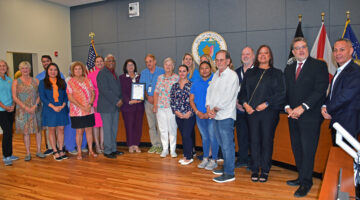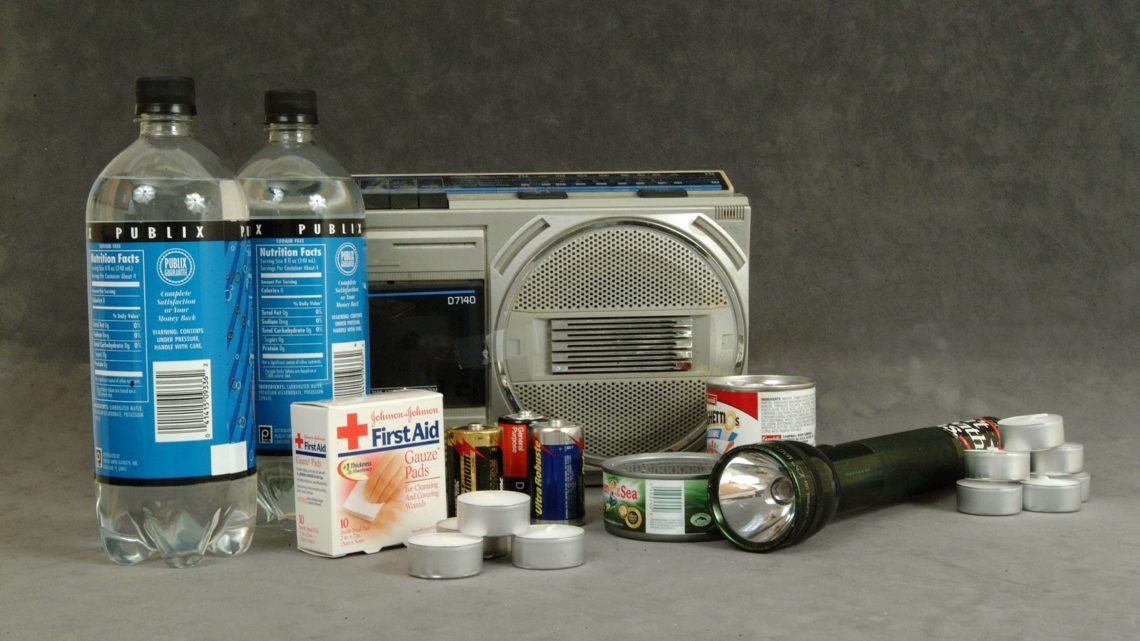Before hurricanes arrive, plan to take care of your elderly loved ones
By: Brad Buck
Imagine a hurricane is coming, not difficult for most Floridians. The cone of uncertainty is become ever more certain, and it’s aiming right at your area. With the storm imminent, you might find yourself in a position to care for elderly relatives or friends.
To help deal with the elderly during hurricane season, UF/IFAS Extension faculty share tips to look after your loved ones before the dangerous storms between now and November, the end of the hurricane season. As always, the hints start with proper prior planning.
It’s important to note that even if you approach the situation with the best intentions, consider that many older people do not like to be told what to do, said Pamela Bradford, an agent with UF/IFAS Extension Hillsborough County. She suggests discussing potential emergencies as early as possible or in advance of the season, as a partnership.
That conversation might include who shelters with whom, food and beverage preferences, medications and more.
“I think the most important thing is to have the conversation with them before disaster strikes to really get candid answers to many questions,” Bradford said.
“Once they share what their preferences are, then the discussion should include whether what they want is realistic or what modifications may be needed,” she said. “Also, include a discussion of what they might be afraid of and then take steps to mitigate their fears.”
And it gets more complex. Jennifer Hagen, a family and consumer sciences agent for UF/IFAS Extension Lee County, says it’s critical to discuss an emergency plan.
“The most important thing is for families to create a disaster plan but to also engage elderly relatives or friends in the creation of the plan and revisit that plan every six months,” Hagen said. “This will not only empower seniors in the process but give them something to review in case of an emergency.”
According to Hagen, your plan should outline:
- Emergency contact numbers, including a designated out-of-state family or friend as a primary contact for all family members before and after the storm.
- Who will be evacuating with whom.
- A list of what to assemble in their family’s supply kit, a grocery list of non-perishable food items, directives for pets, list of vital records and important documents, including how they will be stored and transported.
- A list of medicines and medical equipment. Remember to refill prescriptions before a storm strikes.
- Directions for an evacuation plan, including available shelters. Check with your local hurricane authorities for a list of shelters, which may have changed due to COVID-19.
You can also help your elderly loved ones by directing them to their nearest special-needs shelter, said Andrea Nikolai, a family and consumer sciences agent for UF/IFAS Extension Polk County. Many counties provide evacuation transportation, but you often need to be pre-registered for that, Nikolai said.
“A special-needs shelter is an emergency shelter that will provide special medical or nursing care which does not require an acute-care hospital setting,” Nikolai said. “This would be a good option if your loved ones require electrical equipment, such as oxygen. People who want special-needs sheltering should pre-register with their county’s emergency management staff.”
For more information on how the elderly can take care of themselves before, during and after a hurricane, please check out this UF/IFAS Extension document.
[livemarket market_name="KONK Life LiveMarket" limit=3 category=“” show_signup=0 show_more=0]




No Comment